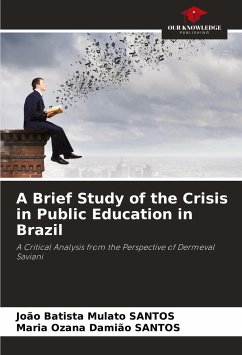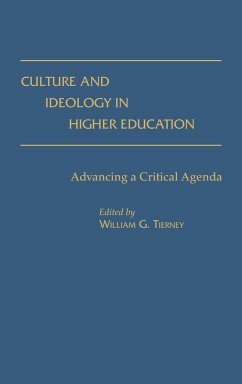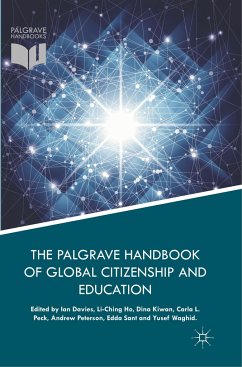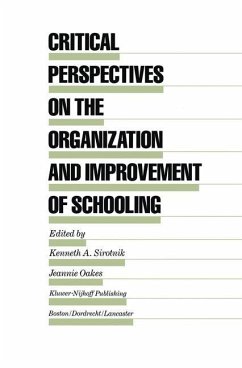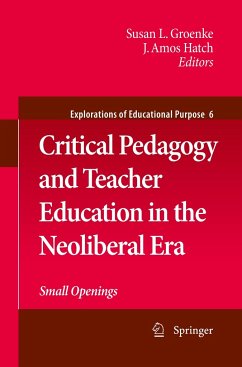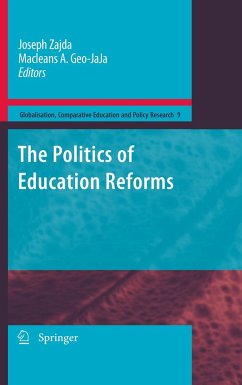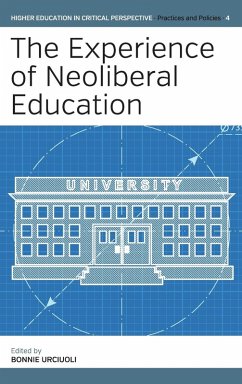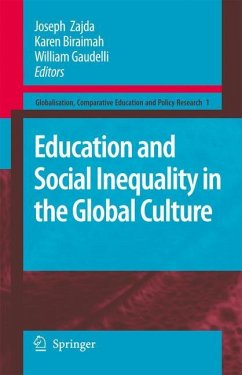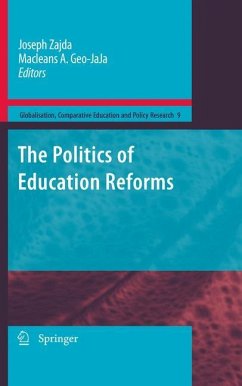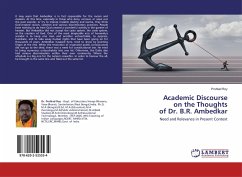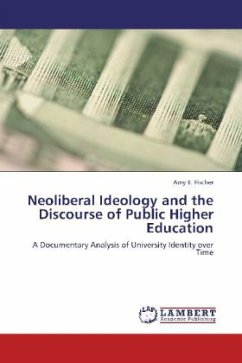
Neoliberal Ideology and the Discourse of Public Higher Education
A Documentary Analysis of University Identity over Time
Versandkostenfrei!
Versandfertig in 6-10 Tagen
32,99 €
inkl. MwSt.

PAYBACK Punkte
16 °P sammeln!
It is widely noted that institutions of higher education have been impacted by neoliberal political ideologies, evidenced by the replacement of civic discourse with corporate discourse; however, there is limited empirical understanding to how this replacement has taken place, particularly in the context of universities which have been historically associated with economic purposes, such as the land-grant universities in the United States. In an effort to explore this methodological gap, this research undertakes a case study of a land-grant university and its identification of purpose and value...
It is widely noted that institutions of higher education have been impacted by neoliberal political ideologies, evidenced by the replacement of civic discourse with corporate discourse; however, there is limited empirical understanding to how this replacement has taken place, particularly in the context of universities which have been historically associated with economic purposes, such as the land-grant universities in the United States. In an effort to explore this methodological gap, this research undertakes a case study of a land-grant university and its identification of purpose and values over time. An application of critical discourse analysis to a sample of university documents suggests that the institution has adapted its discourse to fit within a neoliberal paradigm, rather than replacing civic discourse with market discourse. This research should be particularly useful to those who seek a longitudinal view of the influence of political ideologies in higher education, as well as those who would like to advocate for more nuanced and contextualized research in this area.



